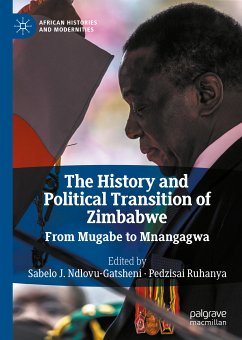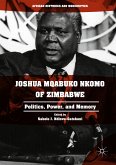This book is the first to tackle the difficult and complex politics of transition in Zimbabwe, with deep historical analysis. Its focus is on a very problematic political culture that is proving very hard to transcend. At the center of this culture is an unstable but resilient 'nationalist-military' alliance crafted during the anti-colonial liberation struggle in the 1970s. Inevitably, violence, misogyny and masculinity are constitutive of the political culture. Economically speaking, the culture is that of a bureaucratic, parasitic, primitive accumulation and corruption, which include invasion and emptying of state coffers by a self-styled 'Chimurenga aristocracy.' However, this 'Chimurenga aristocracy' is not cohesive, as the politics that led to Robert Mugabe's ousting from power was preceded by dirty and protracted internal factionalism. At the center of the factional politics was the 'first family', Robert Mugabe and his wife, Grace Mugabe. This book offers a multidisciplinary examination of the complex contemporary politics in Zimbabwe, taking seriously such issues as gender, misogyny, militarism, violence, media, identity, modes of accumulation, ethnicization of politics, attempts to open lines of credit and FDI, national healing, and national question as key variables not only of a complex political culture but also of difficult transitional politics.
Dieser Download kann aus rechtlichen Gründen nur mit Rechnungsadresse in A, B, BG, CY, CZ, D, DK, EW, E, FIN, F, GR, HR, H, IRL, I, LT, L, LR, M, NL, PL, P, R, S, SLO, SK ausgeliefert werden.









